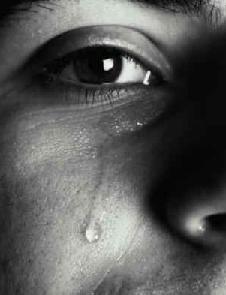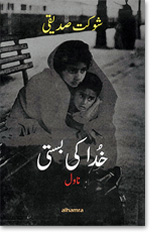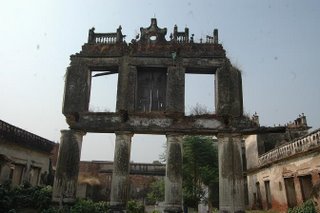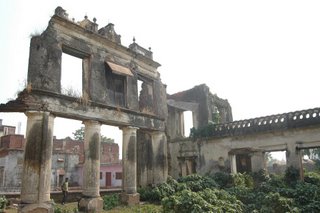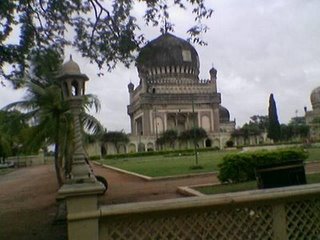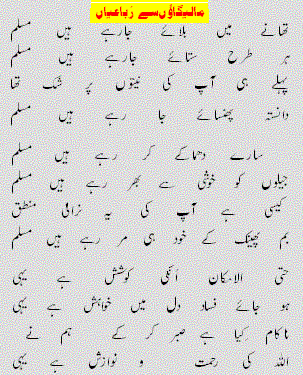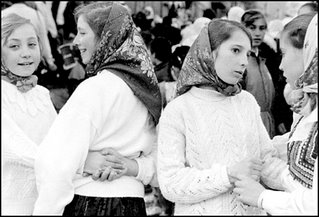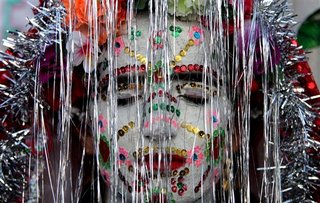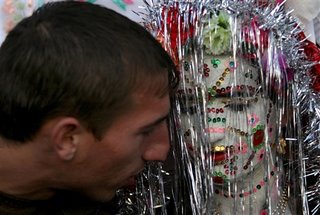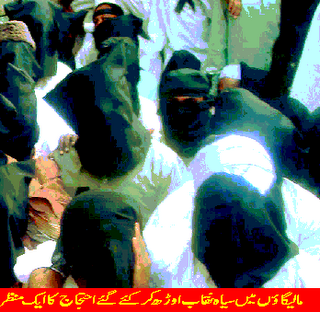 |
| IMARAT-E-SHARIA, BIHAR |
It has become quite a fashion to label madarsas as factories of fundamentalism [or whatever rhymes better and makes a good headline].
In the last decade or so, police and intelligence officials have routinely pointed finger of suspicion towards madarsas and other Muslim institutions.
Recently a senior police officer in Uttar Pradesh did the same. The officer of the rank of Additional Director General (ADGP) termed Imarat-e-Sharia [that was founded by Maulana Azad] as a den of terrorists.
Click to read the story in Patna edition of Times of India.
COPS, THEIR LACK OF AWARENESS ABOUT MUSLIM' SECTARIAN ISSUES
Those familiar with the working of local state-level police intelligence units [not talking about central agencies here] are quite aware about the capability of
Special Branch and other local police units that pass on information and one is often shocked at their absolute lack of knowledge.
Being a journalist, I have a chance to meet a cross-section of people and most of the times they are
not even aware of the difference between an Islamic sect and a School of theology. However, they can readily label a particular madarsa as fundamenetalist.
WHY THINGS DON'T GET REPORTED PROPERLY
After all, they have also to show their working to the superiors. Sometimes such ridiculous claims are made that you don't know whether you should laugh or cry. Most of the local units of intelligence don't have Muslim personnel.
Hence, they gather information edge through journalists, friends and Muslim acquaintances, who are not necessarily aware and whose vision is can be either wrong or biased. So, there is less direct information or clear first-hand understanding.
The decision of Samajwadi Party
government to suspend a top police officer of UP after he presented a report linking the immensely respectable Imarat-e-Sharia with militant activities, is laudable.
Link to report on ADGP's suspension in Lucknow edition of Times of India.
Click
Remember the Raid on Nadwa
 |
| NADWATUL ULEMA, LUCKNOW |
It all started with the raid on
Nadwatul Ulema in Lucknow during the tenure of Prime Minister Narsimha Rao when the midnight swoop failed to yield anything and no terrorist was caught. It caused embarrassment to government.
But, since then, loose comments [and raids] on the highly respected and nationalist institutions have became a sort of a norm. The absolute mental bankruptcy of such officials causes concern as it naturally angers Muslims.
WHEN A MUSLIM MAN GAVE WRONG INFO TO SETTLE PERSONAL SCORES
Cops caught on the wrong foot, hurried action leads to embarrassing situation for them
A case in point is the incident when a Urdu newspaper owner [who happens to be Barelvi] had claimed that the terrorists in the form of a
jamaat had stormed into a mosque. The jamaat members belong to Deobandi group and the former was against Deobandis.
The reason was not just because he had a long-standing
dispute with them over the difference of beliefs but mainly due to possession of the land adjacent to mosque. The police rushed into the mosque and found nothing except praying gentlemen.
However, the Deobandi dominated area was aghast at police storming into the mosque [cops hadn't taken off shoes] and hundreds came on streets. Arson and stone pelting led to the burning of the paper owner's house.
Had the officer-in-charge of police been aware of the Deobandi-Barelvi issue [which he should have been as his predecessors or should have been briefed], the incident would not have happened. In the past also he made similar complaints owing to a personal vendetta.
TAKE ACTION BUT AFTER VERIFYING
Learn, Get info from different sources, Don't follow anyone blindly
But policemen were aware, however, the new policeman came from a far-flung area and in a hurry did not seek anybody's opinion and ended up with creating a law-and-order situation and egg on face of the entire department. The relationship between locals and police was also strained for a long time after the incident.
Kudos to Mulayam Singh for this decision though a few sections might term it as
minority appeasement. I
don't remember an officer of such a high rank every made to pay over similar remarks in past regimes. In fact, the record of Congress governments have been worst on such loose comments.
The new breed of politicians who are suave but not grounded are easily taken in by what the suave officials feed them. Take the
example of Karnataka Chief Minister Kumaraswamy who termed Ahl-e-Hadith as 'terrorist outfit'.
Now what would be one's reaction on such a remark.
He was just saying what the police had told him. And the
police officials who made the comment might never have visited a madarsa or maktab in their lifetime. Would his father, HD Devegowda, have made such a comment?
FALSE PROPAGANDA CAN DAMAGE RELATIONSHIP
My point is that if there is genuine report then they should be properly checked but baseless allegations, without any evidence, cause great harm and further lead to the feeling of persecution amongst Muslims, as well as worsening the relationship.
Meanwhile, read an excerpt from Neelesh Misra's interview with Jamiat Ulema Hind chief Maulana Mehmood Madani. Maulana says:
I went to Uttaranchal Chief Minister Narayan Dutt Tiwari - he is also a friend
of my father -- and said we wanted to set up a school affiliated to CBSE. We
sought permission to buy land. Six months passed.
Finally we got the permission and bought 20 acres of land for Rs 1.5 crores to set up a school and a teachers training college for women.
Suddenly, local newspapers started reporting that
an "Inter Services Intelligence (ISI) den" is going to be set up there.
So I told a minister, we have 150 madrassas in Uttaranchal, and if you dare me, I can
set up 150 more within 24 hours. Even your father cannot stop me. I will ask any
Muslim in any village, he will give me land with gratitude because it is in the
name of Allah.
But I want to start a school. I do not want money from you, I
just want approvals so that we can go to the Central Board of Secondary
Education (CBSE). But they forcibly acquired the land we had bought, saying it was a threat to the security of the Indian Military Academy. We have now taken a
court stay. They are such dishonest people. They think that Muslims are the
enemies of India.
Link to the interview:
http://www.hindustantimes.com/news/181_1871734,0008.htm
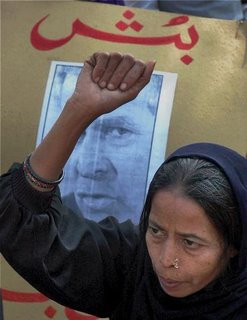
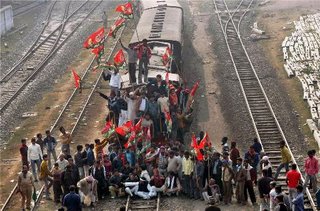 The protesters were sad but calm and there was no destruction of property or arson reported from anywhere.
The protesters were sad but calm and there was no destruction of property or arson reported from anywhere. 

